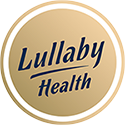Around two thousand years ago, Pliny the Elder advised women to consume powdered sow’s dung to relieve labour pains. In ancient Greece, Rome and Egypt, drinking urine was thought to relieve kidney and liver problems. And less than 150 years ago, here in Australia, lying inside the decomposing corpse of a whale was thought to relieve rheumatic pain!
Introducing evidence-based medicine
These days, you’d look at any doctor who prescribed one of those ‘treatments’. That’s because we now rely on evidence-based medicine (EBM), a process that integrates clinical experience and patient values with the best available research evidence.
But not all evidence is equal. That’s why we also consider the level or quality of the evidence.
At the lowest level are expert opinions or case studies. These are observations drawn from clinical practice and, while they have value, there could be many possible explanations for the findings. An observation about a few patients can’t be generalised to all patients.
At the top level are large-scale, rigorously conducted double-blind randomised controlled trials which aim to be as objective as possible. ‘Blinding’ involves not telling patients which treatment they’re receiving and not telling the researchers either until the end of the study. Findings from studies like these are considered highly reliable and applicable to many patients.
In between, are a number of other types of study. When reviewing evidence, researchers will assess its quality. They’ll ask questions like:
- Was the study in animals or people?
- What kinds of patients were studied? E.g. veterans, young adults, seniors, migraine patients
- How many patients were in the study? Was it 10, 50, 200 or 3,000?
- Were there any side effects to the treatment?
- How reliable are these findings? Could anything else explain them?
Scientific research into alternative medicine
There have been many studies into alternative medicine and more are being published each week. Often these are small studies but each one adds to our understanding of alternative medicine.
The Therapeutic Goods Administration (TGA) notes that “…the amount of evidence is currently limited and the products, doses and research methods used vary between studies. This makes it difficult to come to firm conclusions…”
So, should we wait? Not prescribe alternative medicine at all until we have a fabulous array of trials all proving fantastic results for every clinical condition in question?
No. Real-world evidence also has a place. Tens of thousands of Australian patients are already being prescribed alternative medicine to treat chronic pain. As the Royal Australian College of General Practitioners (RACGP) notes “Many have legitimate lived experience of lasting pain reduction with alternative medicine that is not easily disregarded.”
So, we use the evidence we do have and we step forward cautiously, starting with low doses and moving slowly to see if it is helping you. Over time, that generates further research questions, more studies are conducted and we gradually have a stronger evidence base.
At this stage, there is evidence to support the use of alternative medicine as a second-line treatment or as an adjunct therapy (additional treatment) for various conditions. To help patients and clinicians stay abreast of the latest research into alternative medicine use, Lullaby Health’s Dr Dev Banerjee provides a weekly update on his LinkedIn page.
At this stage, based on its review of the evidence, the TGA states that alternative medicine “…should be used only when approved treatments have been tried and have failed to manage conditions and symptoms.”
That’s how we approach alternative medicine at Lullaby Health.
Alternative medicine at Lullaby Health
At Lullaby Health, we are focused on finding solutions to your healthcare concerns to improve your quality of life.
Alternative medicine is not a first-line treatment. Rather it is used in conjunction with the mainstream treatment for your condition.
Breaking the stigma
Alternative medicine also has a bit of an undeserved reputation problem.
Morphine is prescribed carefully to manage severe pain when other options are not effective or cannot be used. Most people recognise a clear distinction between morphine and its street-drug cousin, heroin.
Cocaine derivatives are used as a topical local anaesthetic. Again, though, this seems worlds away from the street.
And yet, alternative medicine still evokes images of illegal use to get high. That image persists even though many alternative medicine products do not contain the substance that causes a high. Unlike illegally grown marijuana, alternative medicine grown under careful controls to ensure accurate dosing. It is a prescription drug, produced with the same care given to other prescription drugs (and under the same regulations). It is nothing like street marijuana.
Access a better way with Lullaby Health
Lullaby Health helps you access a better way. Where clinically indicated, we’re able to prescribe alternative medicine as part of your overall care, offering a way to ease symptoms and improve quality of life for many patients.
Please book an appointment today.
Disclaimer
Lullaby Health is not promoting the use of medical cannabis. Medical cannabis does affect every person differently, due to factors such as size, weight, health, dosage, tolerance, and age. Medical cannabis might not work for you, and you might experience side effects. Information provided by Lullaby Health is for educational and informational purposes only. For medical advice, please refer to your doctor. Medical cannabis in Australia is regulated by the Therapeutic Goods Administration and details about cannabis as a scheduled drug can be found on their website.




